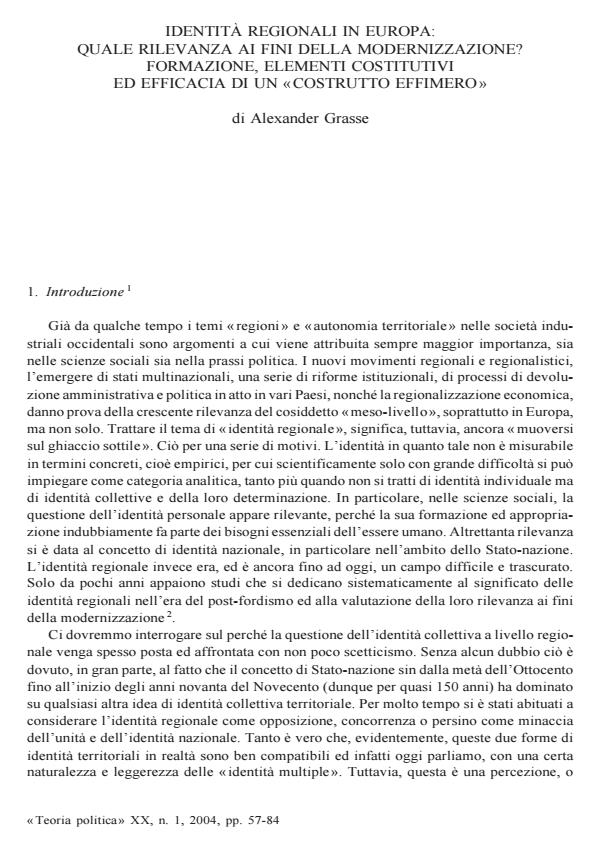Identità regionali in Europa: quale rilevanza ai fini della modernizzazione? Formazione, elementi costitutivi ed efficacia di un costrutto effimero
Journal title TEORIA POLITICA
Author/s Alexander Grasse
Publishing Year 2004 Issue 2004/1
Language Italian Pages 28 P. File size 106 KB
DOI
DOI is like a bar code for intellectual property: to have more infomation
click here
Below, you can see the article first page
If you want to buy this article in PDF format, you can do it, following the instructions to buy download credits

FrancoAngeli is member of Publishers International Linking Association, Inc (PILA), a not-for-profit association which run the CrossRef service enabling links to and from online scholarly content.
For quite some time now, regions and territorial autonomy in industrial societies are becoming topics of ever more importance in both politics and social sciences. New regional movements, emerging multinational states as well as various types of institutional reforms, political and administrative devolution and, last but not least, economic regionalization attest to the growing relevance of the meso-level, especially in Europe. Nevertheless, at the same time, regional identity is often conceived in a clearly negative way, i.e. as a backward-looking, retrogressive or even ethnic-centred phenomenon, and therefore deemed a factor of division, which not only endangers the nation states, but also is a threat to European integration. The article tries to figure out the risks and chances which new concepts of regional identity imply. It develops the thesis that regional identities, at least within the supranational framework of the European Union and in terms of facilitating regional development, are more likely to be a factor of modernisation than a menace. The article also tries to demonstrate how, and to what extent, the process of creating, promoting and changing regional identities can be influenced by different politics, and finally by politicians, questioning the widely accepted theory of path dependency.
Alexander Grasse, Identità regionali in Europa: quale rilevanza ai fini della modernizzazione? Formazione, elementi costitutivi ed efficacia di un costrutto effimero in "TEORIA POLITICA" 1/2004, pp , DOI: